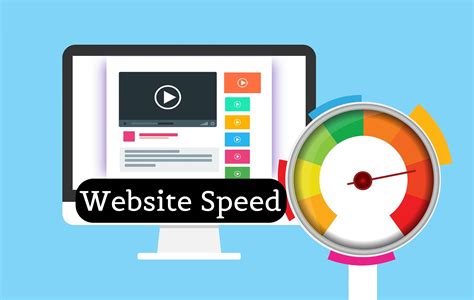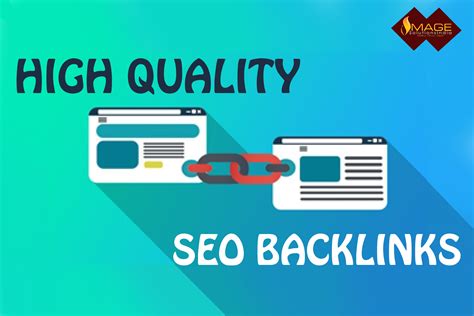In today's digital age, having a strong online presence is crucial for businesses to thrive. And at the core of any successful online presence lies a website that ranks high on search engines. But with the ever-evolving algorithms and fierce competition, achieving a top spot in search engine results can seem like a daunting task.
However, fear not! There are a multitude of proven techniques that can propel your website to new heights and increase its visibility to potential customers. By following these strategies, you can enhance your website's organic traffic and outrank your competitors without breaking a sweat.
So, how can you make sure your website attracts the attention it deserves? The following five techniques will provide you with the necessary tools to optimize your website for search engines, improve its visibility, and ultimately drive more traffic to your virtual doorstep.
1. Harness the Power of Keywords: Keywords are the backbone of any successful SEO strategy. By conducting thorough keyword research, you can identify the most relevant and high-performing keywords in your industry. Incorporating these keywords strategically throughout your website's content, meta tags, and headings will signal search engines that your website is a valuable resource for users searching for these terms.
2. Create Compelling and Engaging Content: Content is king, and it has a direct influence on your website's search engine ranking. By creating high-quality, informative, and engaging content, you not only establish yourself as an industry expert but also increase the chances of other websites linking to your content. Such backlinks are highly regarded by search engines and can significantly improve your website's credibility and visibility in search results.
3. Optimize Your Website's Speed and Performance: In today's fast-paced world, users expect websites to load instantaneously. A slow-loading website not only frustrates visitors but also signals to search engines that your website might provide a poor user experience. Optimizing your website's speed and performance by minimizing file sizes, leveraging caching techniques, and utilizing content delivery networks will not only improve user satisfaction but also boost your search engine ranking.
4. Embrace the Power of Social Media: Social media platforms are not just for sharing cat videos. They have become indispensable tools for businesses to connect with their target audience and increase their website's visibility. By creating and sharing compelling content on social media platforms, you can expand your reach, attract more visitors, and improve your website's search engine ranking through increased engagement and social signals.
5. Foster a Positive User Experience: User experience (UX) plays a crucial role in determining how long visitors stay on your website and whether they convert into customers. A website that is easy to navigate, visually appealing, and mobile-friendly will not only attract more visitors but also increase the chances of them interacting with your content and staying longer. Search engines consider these user engagement metrics as indicators of a high-quality website and consequently reward them with better search engine rankings.
In conclusion, optimizing your website's search engine ranking requires a multifaceted approach that combines keyword research, compelling content creation, website performance optimization, social media marketing, and user experience optimization. By implementing these strategies into your digital marketing efforts, you can ensure that your website is not only visible but also highly ranked on search engines, leading to increased organic traffic and business growth.
Enhance Your Site's Visibility on Search Engines

Optimizing your website's online presence is essential for ensuring that it appears prominently in search engine results. By implementing five key strategies, you can significantly improve your site's search engine ranking and attract more organic traffic.
1. Enhance On-Page SEO: To improve your site's visibility, focus on optimizing various on-page elements such as meta tags, headers, and URLs. By incorporating relevant keywords and creating compelling content, you can make your web pages more search engine friendly.
2. Develop High-Quality Backlinks: Building authoritative backlinks from reputable websites is a crucial aspect of boosting your search engine ranking. Engage in strategic link building activities such as guest posting, influencer outreach, and content promotion to enhance your site's credibility and authority.
3. Enhance Site Speed: A slow-loading website can negatively impact your search engine ranking. Ensure that your site is optimized for speed by minimizing file sizes, leveraging caching and compression techniques, and using a reliable hosting provider.
4. Utilize Social Media Presence: Social media platforms can significantly contribute to your website's visibility. Promote your content on various social channels, engage with your audience, and encourage social sharing to improve your site's reach and exposure.
5. Regularly Update and Optimize Content: Continuously updating and optimizing your website's content is crucial for maintaining a high search engine ranking. Conduct keyword research, analyze user behavior, and create relevant, valuable, and authoritative content to attract and retain visitors.
By implementing these strategies, you can enhance your website's search engine ranking, increase organic traffic, and ultimately achieve your online goals.
Improving Website Experience for Better Performance
In this section, we will explore various techniques to enhance the usability and satisfaction of visitors on your website. Delivering a seamless user experience plays a crucial role in attracting and retaining users, ultimately leading to improved performance and engagement.
- Optimize Navigation: Ensure your website has a clear and intuitive navigation structure that allows users to easily find the information they need. Streamline menus, use descriptive labels, and implement breadcrumbs for effortless exploration.
- Create Engaging Content: Craft compelling and relevant content to captivate the attention of your audience. Use engaging visuals, implement a suitable writing style, and present information in a visually appealing manner to keep users engaged on your website.
- Improve Page Load Speed: Enhance the loading speed of your website by optimizing images, minifying CSS and JavaScript files, and utilizing caching techniques. A fast-loading website not only improves user experience but also positively impacts search engine rankings.
- Implement Mobile Optimization: With the increasing use of smartphones and tablets, it is crucial to optimize your website for mobile devices. Ensure your website is responsive, adjusts well to different screen sizes, and provides a seamless experience across all devices.
- Enhance Accessibility: Make your website accessible to all users, including those with disabilities. Use appropriate color contrasts, provide alternative text for images, and consider implementing accessibility features such as keyboard navigation and screen reader compatibility.
By implementing these techniques, you can significantly enhance the user experience of your website, leading to increased user satisfaction and improved overall performance. Prioritizing user experience is essential for attracting and retaining visitors, ultimately positively impacting your website's visibility and success.
Enhance Your Website's Loading Speed

In this section, we will explore various techniques to improve the loading speed of your website. A fast-loading website is crucial in providing a seamless browsing experience for your visitors. By implementing the following strategies, you can optimize your website's loading speed and enhance user satisfaction.
- Evaluate and optimize your website's code: Reviewing and optimizing the code of your website can significantly improve its loading speed. Minimizing the use of unnecessary scripts, reducing the size of CSS and JavaScript files, and optimizing HTML markup can all contribute to faster page load times.
- Optimize image files: Optimizing the images on your website is essential for improving loading speed. Compressing images, reducing their size, and using the correct file formats can help minimize the load time without compromising the visual quality.
- Utilize caching techniques: Caching is a technique that allows storing website data temporarily, enabling faster retrieval and reducing server load. Implementing browser caching, server-side caching, and content delivery network (CDN) caching can all contribute to a noticeable improvement in loading speed.
- Minimize HTTP requests: Each file, such as images, CSS, JavaScript, and fonts, necessitates a separate HTTP request. Reducing the number of HTTP requests by combining or minifying files can significantly enhance the loading speed of your website.
- Opt for a reliable hosting provider: Choosing a reputable hosting provider that offers fast servers and robust infrastructure is crucial for ensuring optimal loading speed. Evaluate the hosting options available and select one that can support the needs of your website.
By implementing these techniques, you can optimize your website's loading speed, resulting in improved user experience and better search engine rankings.
Discover High-Relevance Keywords and Strategically Utilize Them
In order to enhance your website's visibility on search engines and attract relevant organic traffic, it is imperative to conduct comprehensive keyword research and strategically incorporate them throughout your content. By uncovering high-relevance keywords that accurately reflect the nature of your business or website, you can optimize your online presence and improve your chances of ranking higher in search engine results.
Identifying target keywords: Begin by brainstorming potential keywords or key phrases that are relevant to your niche or industry. Consider the terms that your target audience is likely to use when searching for products, services, or information related to your website. It is essential to strike a balance between general keywords with a high search volume and more specific long-tail keywords that may have lower competition.
Conducting keyword research: Utilize various keyword research tools, such as Google Keyword Planner, SEMrush, or Moz Keyword Explorer, to analyze the search volume, competition, and relevance of the identified keywords. These tools can provide valuable insights into the performance and potential of each keyword, helping you make informed decisions when optimizing your website's content.
Implementing keywords strategically: Once you have a list of target keywords, it is essential to strategically incorporate them throughout your website's content. Optimize your page titles, headings, meta descriptions, and URL structures with relevant keywords to improve visibility. Additionally, ensure that the keywords are naturally integrated into your body text, providing valuable and informative content for your visitors while leveraging SEO benefits.
Monitoring and adapting: Search engine algorithms are constantly evolving, and keeping an eye on your keyword performance is crucial for maintaining a competitive online presence. Regularly monitor the ranking and performance of your keywords, and adapt your strategy as needed. By staying up-to-date with keyword trends and user behavior, you can continuously optimize your website's search engine ranking and attract valuable organic traffic.
By conducting thorough keyword research and strategically integrating them into your website's content, you can significantly improve your chances of ranking higher in search engine results and driving targeted traffic to your website.
Obtain High-quality Backlinks to Enhance Your Website's Visibility

When it comes to generating greater online visibility for your website, one powerful strategy to consider is acquiring high-quality backlinks. Backlinks serve as endorsements from other websites, indicating that your content is valuable and trustworthy. These endorsements can significantly improve your website's search engine ranking and attract more organic traffic. To leverage the potential of backlinks effectively, it is crucial to employ a diverse range of techniques that foster the creation of high-quality and relevant links.
1. Cultivate Relationships with Influential WebsitesEstablishing connections with influential websites in your niche can be an effective method to generate high-quality backlinks. By reaching out to industry leaders, reputable bloggers, or influential content creators, you can propose collaborations, guest blogging opportunities, or the sharing of relevant resources. Building relationships with these key players can result in valuable backlinks that provide significant exposure for your website. |
2. Leverage the Power of Content MarketingCreating compelling and informative content is essential for attracting backlinks naturally. By crafting valuable content that addresses the needs and interests of your target audience, you increase the chances of others linking to your website. Informative blog posts, comprehensive guides, and engaging infographics are all examples of shareable content that can entice other webmasters to link back to your site, enhancing your online presence. |
3. Utilize Social Media PlatformsSocial media platforms offer excellent opportunities to generate backlinks and increase your website's visibility. By promoting your content on platforms such as Facebook, Twitter, LinkedIn, or Instagram, you can attract attention from influential individuals or organizations who may share your content, leading to valuable backlinks. Additionally, engaging with your audience on social media can also foster relationships that may result in future backlink opportunities. |
4. Submit your Website to Online Directories and ListingsSubmitting your website to reputable online directories and listings is a simple yet effective method to acquire backlinks. These directories typically categorize websites based on their industry or niche, providing an opportunity to showcase your website and earn valuable backlinks. Be sure to choose reliable directories that have high domain authority and align with your website's theme. |
5. Monitor and Disavow Low-quality BacklinksRegularly monitoring your backlink profile is essential to ensure its quality and relevance. Identify any low-quality or spammy backlinks that may harm your website's reputation or search engine ranking. By using tools like Google Search Console, you can disavow these undesirable backlinks, signaling to search engines that you do not endorse or associate with them. This practice helps maintain the integrity of your backlink profile and improve your website's visibility. |
Create Captivating and Shareable Content
In the ever-evolving digital landscape, the key to gaining visibility and attracting a wider audience lies in creating engaging content that captures attention and compels users to share it with others. Content that is both captivating and shareable not only boosts your online presence but also enhances your chances of achieving higher rankings in search engine results.
But what exactly does it mean to create captivating and shareable content? It entails producing compelling articles, blog posts, videos, or infographics that resonate with your target audience. By understanding their interests, pain points, and preferences, you can craft content that sparks their curiosity and compels them to take action.
One effective way to create captivating content is to tell stories. Stories have a unique power to captivate and engage readers, as they evoke emotions, build connections, and leave a lasting impact. Consider weaving anecdotes, personal experiences, or case studies into your content to make it more relatable and memorable.
- Include visually appealing elements such as images, illustrations, or videos to make your content more eye-catching and shareable. Visuals not only enhance the aesthetics of your content but also make it easier for readers to consume and comprehend.
- Ensure that your content provides practical value to your audience. By offering helpful tips, actionable advice, or insightful information, you position yourself as a valuable resource and increase the likelihood of users sharing your content with others.
- Make your content interactive by incorporating quizzes, polls, or surveys. Interactive elements not only encourage user engagement but also make your content more entertaining and share-worthy.
- Don't forget to optimize your content for search engines. Use relevant keywords strategically throughout your content to improve its visibility in search engine rankings. However, be careful not to overuse keywords, as it can negatively impact the readability and user experience.
By employing these techniques and consistently creating captivating and shareable content, you can establish a strong online presence, attract a larger audience, and ultimately improve your website's search engine ranking.
FAQ
What are some strategies to boost a website's search engine ranking?
There are five effective strategies to boost your website's search engine ranking. These strategies include optimizing your website's content, improving your website's loading speed, utilizing relevant keywords, obtaining high-quality backlinks, and utilizing social media platforms.
How can I optimize my website's content to improve search engine ranking?
To optimize your website's content, you should focus on creating high-quality and engaging content that is relevant to your target audience. Use appropriate keywords naturally throughout your content and ensure that your website's pages are easily accessible and structured. Additionally, regularly updating your content can also help improve search engine ranking.
Why is website loading speed important for search engine ranking?
Website loading speed is crucial for search engine ranking because search engines prioritize websites that provide a positive user experience. If your website takes too long to load, users are likely to leave, resulting in a higher bounce rate. To improve your website's loading speed, optimize image sizes, minimize unnecessary plugins, and enable browser caching.
How can I obtain high-quality backlinks to boost my search engine ranking?
Acquiring high-quality backlinks is essential for improving search engine ranking. You can generate quality backlinks by guest blogging on reputable websites, creating shareable content that others naturally link to, and reaching out to influencers or industry experts for collaborations or references. Additionally, engaging in social media marketing can also help attract backlinks.



